Worst Snacking Habits for Your Waistline, Say Experts
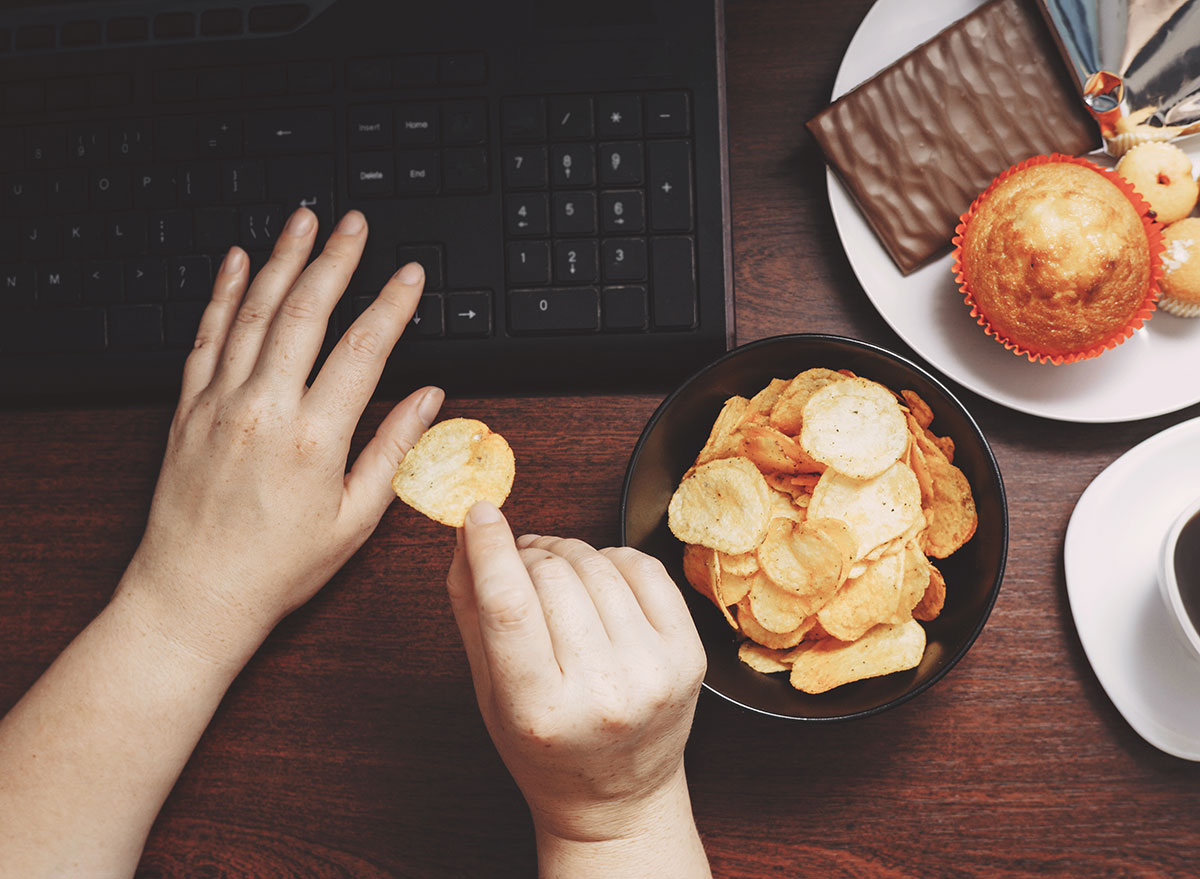
Whether you find yourself mindlessly munching while you drive or always grab something from the fridge before bed, we all have a few less than stellar snacking habits in our regular routine. However, not all snacking habits are created equal when it comes to your health and weight.
With the help of registered dietitians, we've rounded up the worst snacking habits for your waistline that you need to break now. And for more insight into why you may be packing on the pounds, check out these Popular Costco Foods That Are Making You Gain Weight, Say Dietitians.
Eating high-calorie, low-volume foods
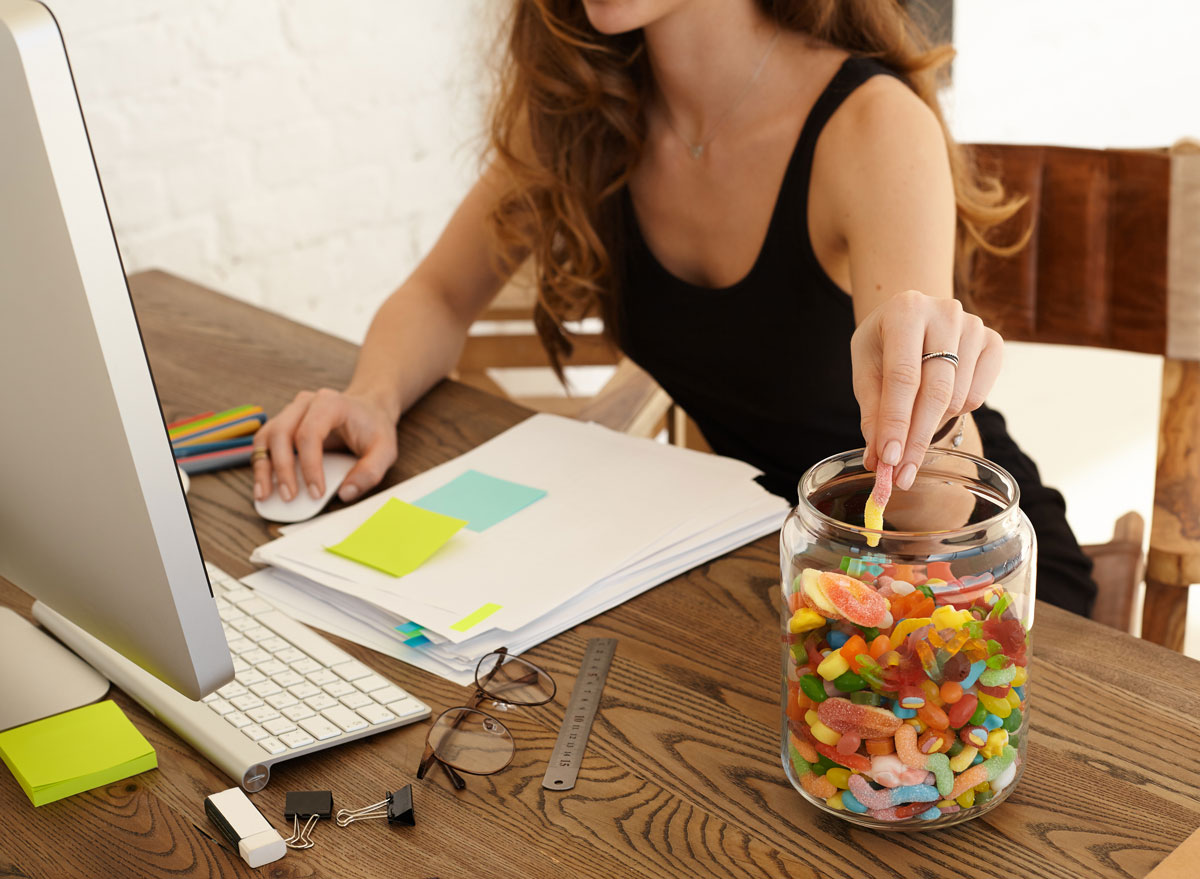
If that snack is small in size but high in calories, it's likely to cause you to pack on the pounds, experts say.
"Eating high-calorie foods with low volume is a bad snacking habit," says Alexandra Soare, RD, founder of Food on Mars, who says that this is a particularly problematic habit when those foods are high in sugar. "You will ingest a high amount of calories at once and you will soon feel hungry again. Pick high volume and low-calorie foods instead. You will feel full for longer."
Snacking primarily on carbs
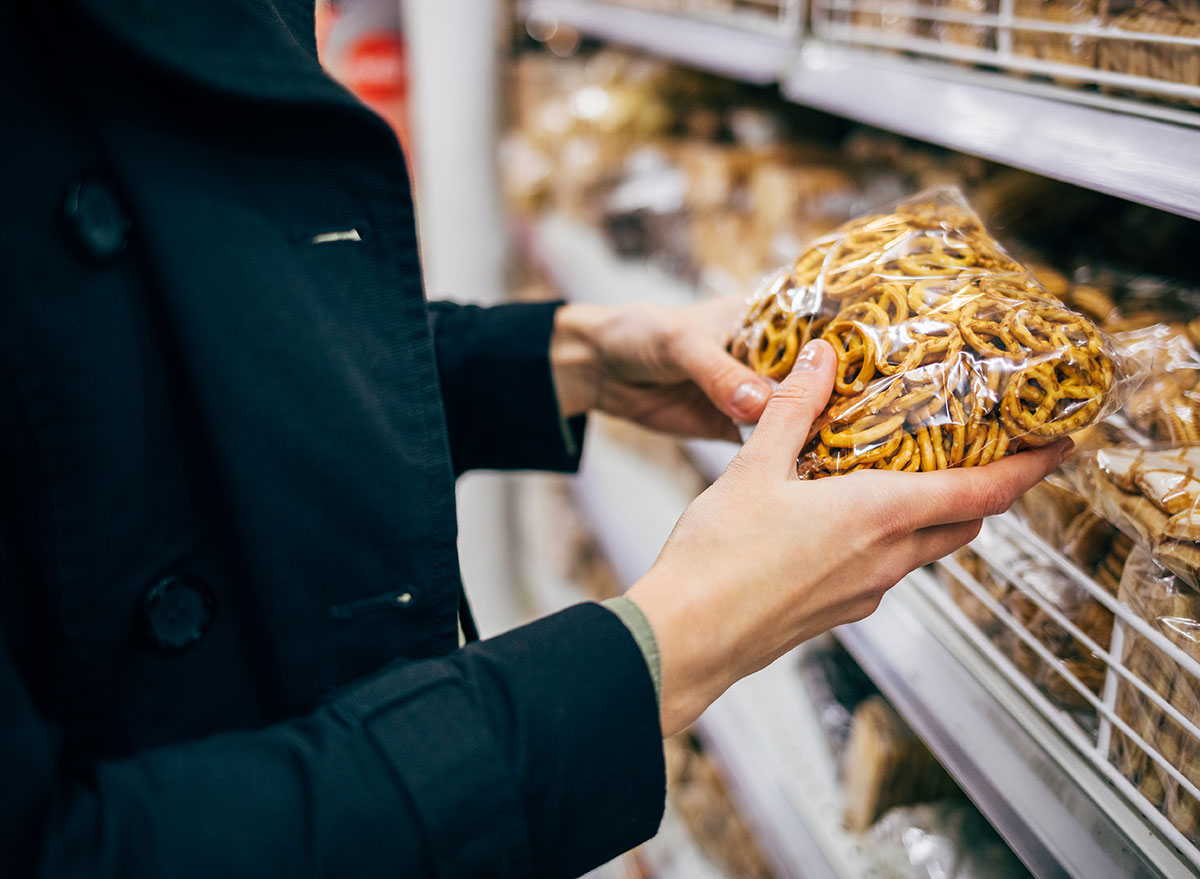
While many traditional snack foods are carb-heavy, if you're not pairing those treats with protein, you can easily pack on the pounds—and fast.
"Leaving protein out of snacks, and eating only refined carbohydrates, such as pretzels, chips, and crackers is a big mistake, usually because you overdo it on calories, which can lead to weight gain and belly fat," explains Elizabeth Ward, MS, RDN, The Menopause Diet Plan, A Natural Guide to Hormones, Health, and Happiness. Instead, Ward recommends combining protein, carbohydrates, and fat when you snack. "The protein/carb/fat combo keeps you fuller for longer, which keeps calories under control." And for some carbs you should definitely cut from your meal plan, check out The 21 Unhealthiest Carbs on the Planet.
Eating mindlessly
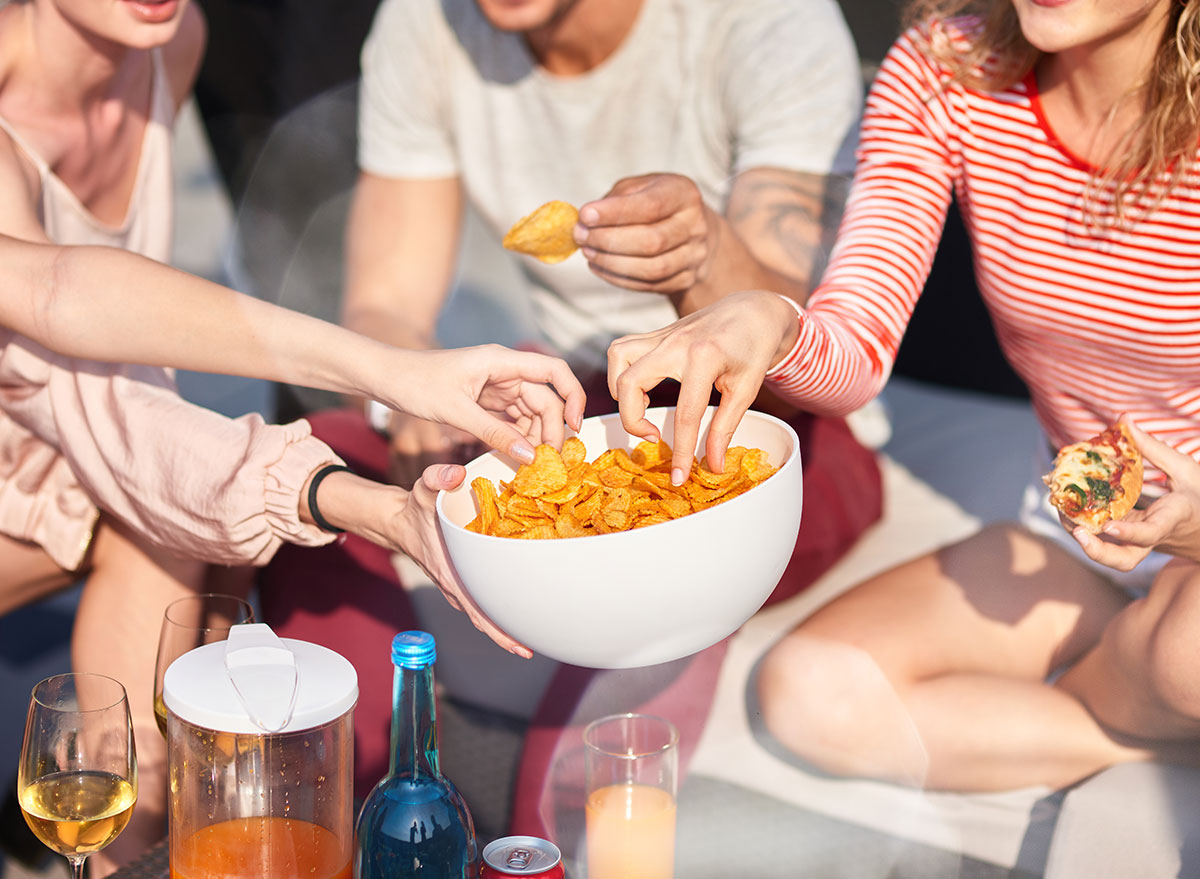
If you can't tell if you're eating because you're hungry or just because food is available to you, that's a recipe for weight gain.
"We are surrounded by food at all times and having this much food around us has become a detriment. It is important to check in with yourself to make sure you're actually feeling hungry before getting something to eat," explains Claudia Hleap MS, RD, LDN, founder of Hleap Nutrition LLC. "This way you're not depriving yourself, but making sure to nourish your body when you need to."
Snacking straight from a bag or container
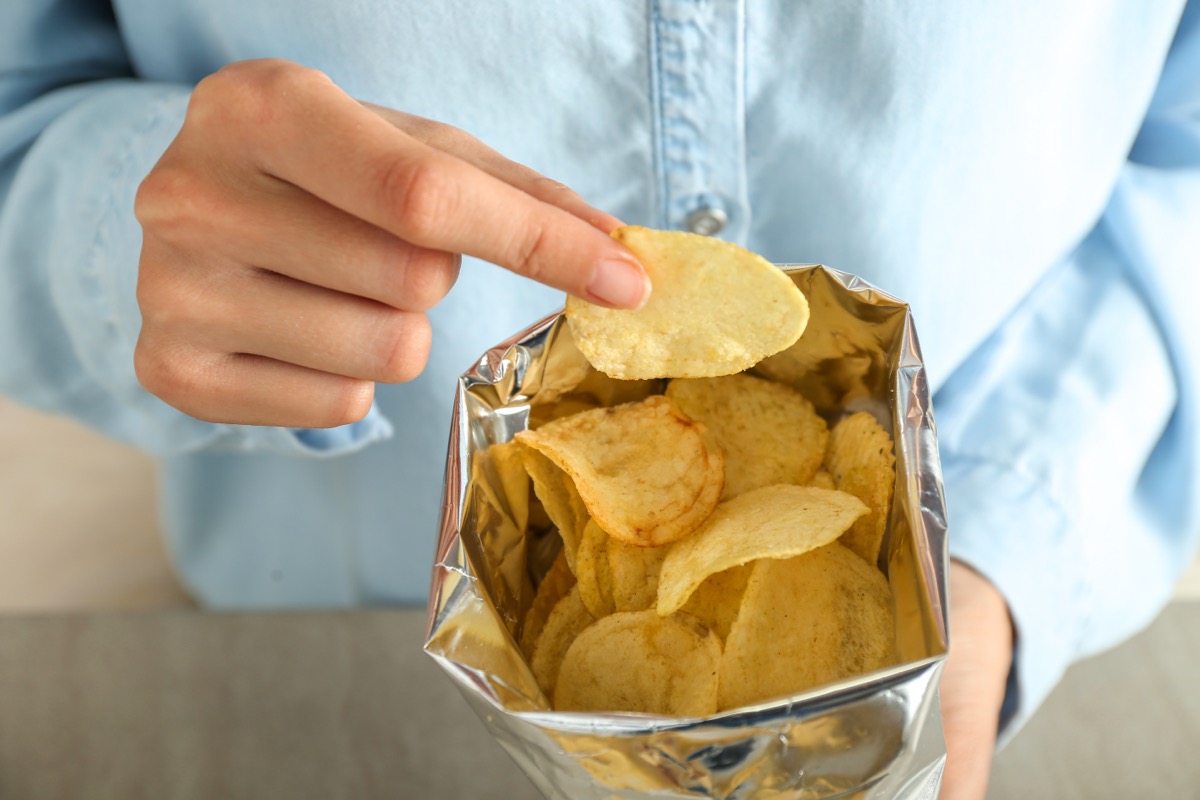
Sure, it may mean one less bowl or plate to wash, but snacking straight out of the container can lead to major weight gain in a short amount of time.
"Snacking straight out of a bag is a great way to consume too many calories unknowingly," says Hannah Killion, MS, RDN, CDCES, founder of Diabetes From the Ground Up. "Even if you are eating a low-calorie, healthy snack, it is always a good idea to measure out your portion and put the bag away. That way you know exactly how much you are consuming, and you are less likely to overeat."
Snacking in front of the TV
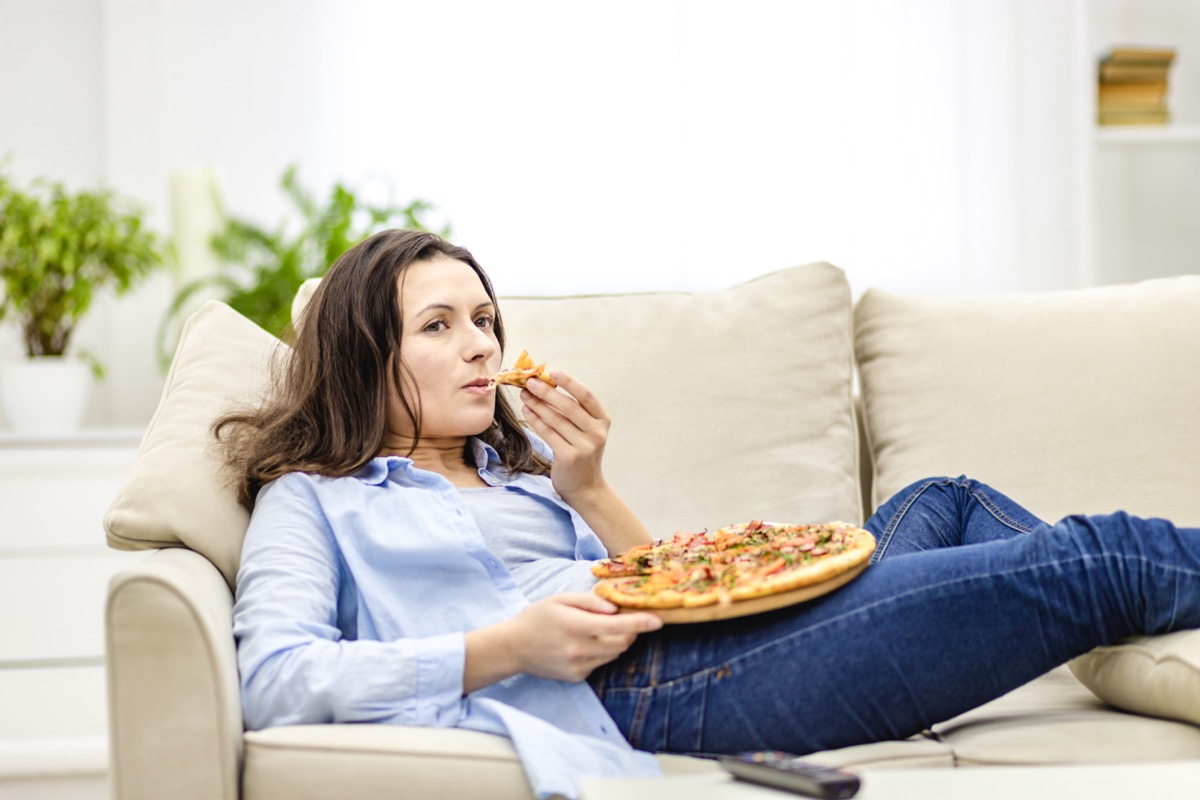
While having a snack while watching your favorite show may feel like a natural pairing, eating in front of screens is a recipe for weight gain in the long run.
"When you're distracted, it's almost impossible to keep track of what and how much you're eating. Not only that, but if you're not paying attention when you're eating, sometimes the brain thinks it hasn't eaten at all, leading you to still feel hungry when you're not, making you likely to eat even more," explains Laura Yautz, RDN at Being Nutritious.
Snacking when you feel emotional
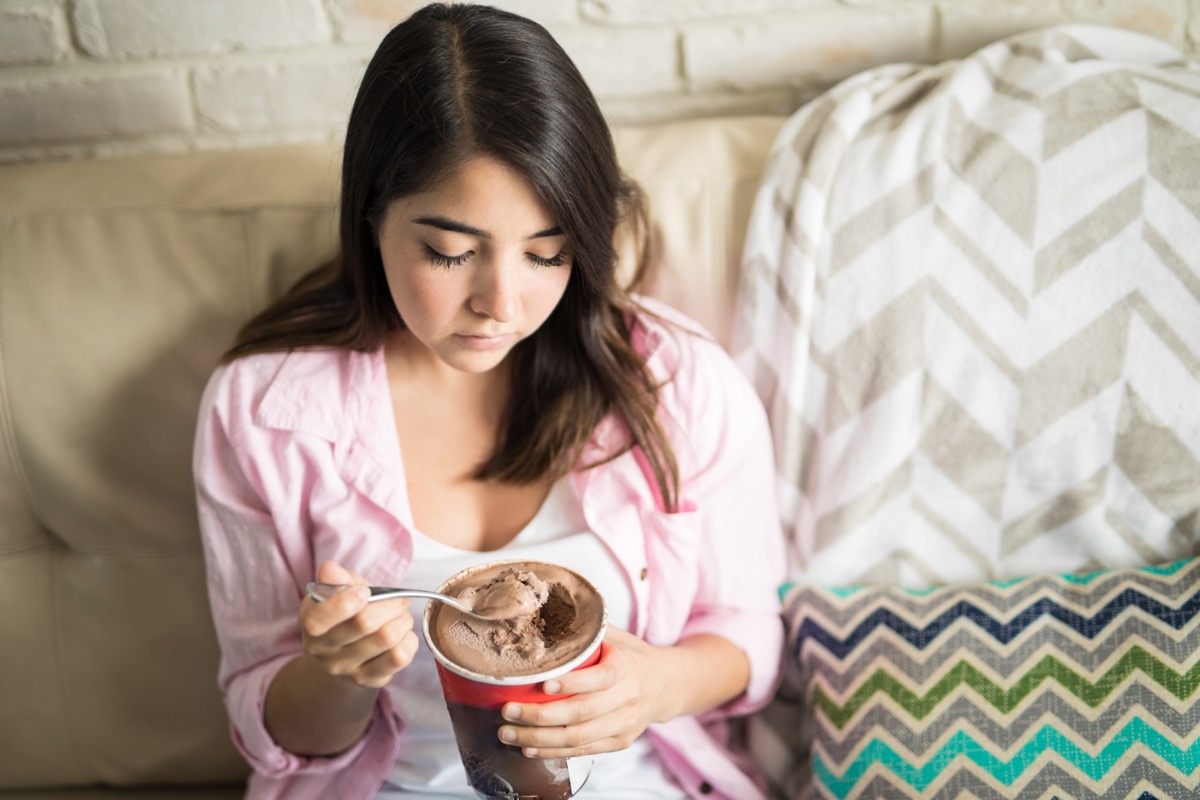
If the first thing you do when you feel sad or lonely is reach for a snack, it won't be long before you see the pounds start to creep on.
"If you're eating due to stress, anxiety, or depression, this can lead to weight gain. When you do this, you are feeding your body calories when it doesn't actually need them," explains Melissa Mitri, MS, RD, a registered dietitian at Wellness Verge.
Read this next:








